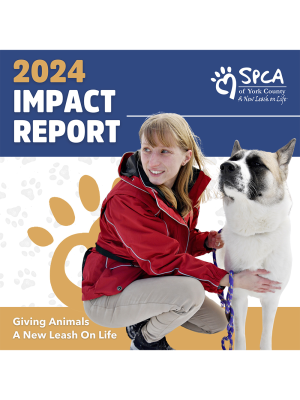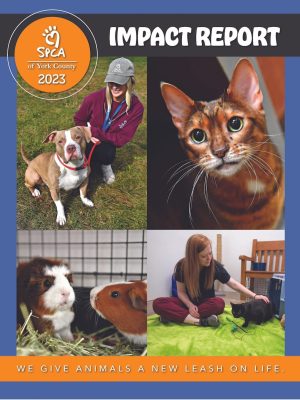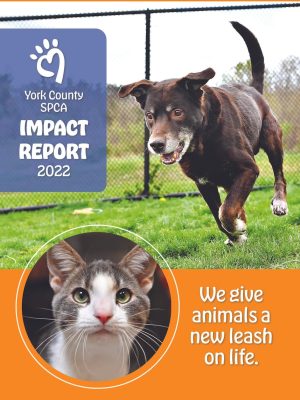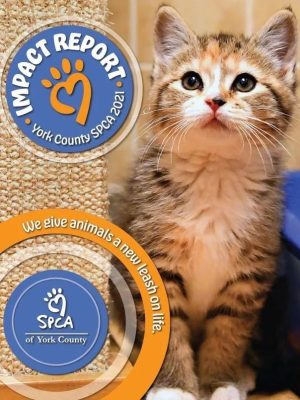Our Impact in York County
Reports & Shelter Stats
Our Impact
Creating a safer, healthier York County
For nearly 100 years, the York County SPCA has served York County’s 72 municipalities – transporting and housing sick, injured, dangerous, abandoned, and lost animals.
We are the ONLY animal shelter responsible for housing all of the county’s displaced pets, and we are honored to provide our community with these life-saving public health and safety services. Our impact is a testament to what we can achieve together. Each life saved, family reunited, and service provided to a community-member in need is a direct result of your belief in our mission. You empower us to create a community where people and pets are treated with compassion and dignity.
Our Mission In Action
2024 Impact Report
In 2024, we continued to set new records with our essential services for the community, including conducting 1,983 animal welfare checks and providing more than 47,000 lbs. of food to pet owners in need.
Our Mission In Action
2023 Impact Report
In 2023, we faced a significant challenge as 34% more stray dogs entered our shelter than in 2022, but thanks to our staff and volunteers, we increased the number of dogs and cats in loving foster homes.
Our Mission In Action
2022 Impact Report
In 2022, we continued to perform a record-breaking number of surgeries. We also rolled out and revitalized lifesaving programs including the feline foster program, Shelter Neuter Return, and a working cat program.
Our Mission In Action
2021 Impact Report
In 2021, our Spay/Neuter Clinic reached its maximum capacity for the number of surgical procedures possible in a year (9,398!), contributing to a healthier York community.
Our Mission In Action
2020 Impact Report
In 2020, we increased our adoption rates by 22%. Nearly, 1,300 pets were adopted, and we reunited over 200 lost pets with their owners.
2023 Expenses
Our Commitment To Transparency & Excellence
Give With Confidence
For every $1 donated, $.85 directly supports animal care, services, and programs.
The York County SPCA is a 501(c)(3) non-profit independent humane organization with no affiliation with other animal welfare organizations such as the American Society for the Prevention of Cruelty to Animals (ASPCA), and donations to the ASPCA do not make their way back to our local shelter.
Do you believe every animal deserves a safe and loving home?
We do! Join us in ensuring animals have access to lifesaving care when they need it most, so they can heal, grow, and prepare for their forever home.






